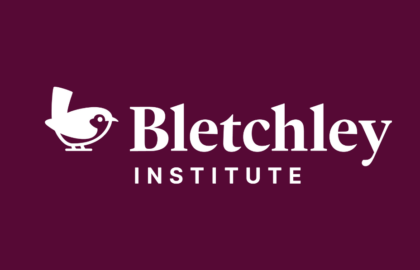Mid-life Career Change: Leslie’s Journey From Biologist to Technologist

A mid-life career change could sound very scary! Here is the story of Leslie’s journey to find happiness and success in her career with the help of Flatiron School.
This article is part of the Coaching Collective series, featuring tips and expertise from Flatiron School Career Coaches. Every Flatiron School graduate is eligible to receive up to 180 days of 1:1 career coaching with one of our professional coaches. This series is a glimpse of the expertise you can access during career coaching at Flatiron School.
Leslie Stevens landed a role in technology after a short job search, overcoming her fears of ageism and realizing that mature workers are an advantage in a market seeking employee stability and experience. This is her journey.
After decades of work as a successful biologist, Leslie Stevens found herself, in her late 50s, craving the opportunity to learn new skills and launch a new career path in software engineering.
She was intrigued by the idea of learning programming and started taking online courses, which she really enjoyed. But when she decided to become a developer she realized that she would need a more structured program like Flatiron School to make her career change a reality.
Coding allowed her to challenge herself, stimulated her intellectually, and was fun. As a woman, Leslie wanted to maintain financial independence as she got older. And she wasn’t ready to retire – she didn’t feel like she had contributed enough to the greater good yet.
Still, taking the leap wasn’t an easy choice. Leslie told a friend, “I’ll be 60 when I’m done with this program.” When her friend replied, “In a year you’ll be 60 anyway, whether you do the program or not,” Leslie decided to join Flatiron School and forge a new career path for herself.
Leslie’s experience completing the program was hard, but affirming. It showed her she was capable of learning new things, could keep moving forward, was persistent and able to do the work. She loves tech because of the generous nature of the field, which is important for changing careers at any age: “You can go onto Stack Overflow and someone has spent a lot of time explaining a concept for total strangers.”Even after finishing Flatiron School, however, Leslie doubted her ability to land a job. She was worried her age and extensive career background exclusively in science would be barriers. But, by working with a Flatiron School Career Coach, Leslie was able to overcome limiting beliefs, produce effective job search materials and create a dynamic strategy for her search.
After a brief two months of job searching, Leslie landed a job at the University of Texas (where she previously worked as a scientist) as a Software Developer Trainee, a four to six month program that will result in her ultimately joining a team at the University as a developer. She is learning yet another programming language while also growing her non-coding skills: becoming better with time management and asking for help, starting and completing projects under deadline, and switching between tasks quickly.
“Just like in real life, you have a certain amount of time to finish something and you have to figure out how to get there even if you’re not delivering the perfect project,” Leslie said.
Here are Leslie’s tips and recommendations for other mature career transitioners in tech:
1. Be Confident and Comfortable with Your Life Experience
Leslie shared that it took her a while to recognize that it’s an advantage to be mature and to have extensive work experience. And, that it’s a great time for a veteran worker to be looking for a job in tech because the demand for developers is high. If she could start her search over, she would approach it much more confidently, both because of the skill set she gained at Flatiron School and her life experience.
An advantage of being older is that you have a certain level of maturity in approaching work and challenges. Things that would have “freaked me out in the past,” she is now able to deal with easily and maintain equanimity. And, if you’ve had a long career, you’ve dealt with difficult people, and you know how to handle yourself in pressured, personal interactions and project calm at work. Additionally, she shared that as an older adult, you’re a known quantity. She knows how to get work done, has already been through many of life’s challenges, and can handle herself on the job. These are all benefits to her current and future employers.
2. Know What You’re Looking For & Craft Your Job Search Materials
Leslie recommends that mature workers should learn about the tech job landscape and know what they want to do before they start the job search. “When you start searching and applying, things can actually happen fast,” she said. “So when things get moving, you need to have a sense of whether a job is going to be the right one for you or not.”
Once you know what you’re looking for, you can develop a smart job search strategy, and then put together a strong resume, LinkedIn presence, cover letters, and networking outreach emails to support your experience and interest. Leslie shared that all of this takes preparation, practice, and improvement, but being specific about the kind of job you want is important in using your time wisely and communicating information about your extensive background and skills effectively.
3. Leverage Your Experience & Transferable Skills
One of the most beneficial parts of being a mature job seeker was that Leslie had experience being both an employee and an employer. “On Zoom calls, I could put myself in the employer’s position, imagine what they were looking for, and put my best foot forward because I knew what I would have wanted to see,” she said.
Having more work experience also allowed Leslie to generate solid interview answers, which helped during cultural interviews. To prepare, she went through a list of Flatiron School -provided practice interview questions, wrote down answers for each over time, reflecting deeply on her varied experiences to come up with the strongest possible stories and examples. “I was asked many of those questions and didn’t have canned answers, I had thoughtful answers. And I was able to project confidence and comfort because of that. The advantage of having long work experience is if you spend enough time thinking about a question, you can come up with a story and example that fits. You do have experience to share,” Leslie said.
Leslie also recommends career changers identify their transferable skills, as they will help both in the job search and on the job. Leslie’s skills in logical thinking, oral communication, and working with others from her time as a scientist and educator all came into play at the bootcamp, during the interview process, and now on the job as a developer.
4. Identify Older Worker-Friendly Companies & Organizations (but also don’t limit yourself)
The biggest challenge Leslie faced in her job search with ageism was her own bias. She worked with her career coach to help overcome her limiting beliefs about how her age would impact her search. Leslie said that “letting myself self-sabotage was the most damaging thing, but once I had the epiphany I was doing this, I set it aside and it was full steam ahead.”
Leslie said she did not put out a huge number of job applications, and feels she could have potentially experienced age discrimination if she went that route. While she knows there is nothing she could do about people having an individual bias, she did try to target organizations that had strong anti-discrimiation policies, looking heavily at universities and government agencies. But, she recommends targeting employers in all sectors and had a number of positive interviews and interactions throughout her job search.
She also recommends contributing to open source – publicly accessible source code. “There are so many great people you can meet,” Leslie said. And networking is the fastest route to landing a job.
5. Work with a Career Coach & Use Flatiron School’s Career Prep Curriculum
Even though she was an experienced worker, Leslie hadn’t looked for a job in a long time and, when she did, it was as an academic, which has a very different process.
“A huge shout out to Flatiron School’s career coaching team: I could not have done it without you. I would not have even tried,” she said.
At Flatiron School, all graduates are eligible to be paired with a career coach for 1:1 coaching for up to 180 days of job searching.
In addition to working with a coach, Leslie found Flatiron School’s career prep curriculum, covering the basics of resumes, personal branding, networking, job search, and negotiation strategies incredibly helpful in guiding her work and activities after graduation.
“If people really commit themselves to following the suggestions in Flatiron School’s career prep curriculum, they will be successful. I couldn’t believe it myself, I just felt like maybe it worked for those people and I’m a special case. But I got this job. It’s possible,” Leslie said.
What’s next for Leslie? “It’s important to me to be part of a collaborative and supportive team whose work has a positive impact. I plan to continue contributing to open source projects and I hope to be able to use my coding skills to help organizations that are trying to address climate change.”
About Rebecca Schramm
Rebecca Schramm is a career coach with Flatiron School. She previously worked at Columbia University as a career counselor and in corporate communications in media. She specializes in coaching career changers, clients who identify as women, and clients from underrepresented backgrounds in science and technology.
Disclaimer: The information in this blog is current as of March 25, 2022. Current policies, offerings, procedures, and programs may differ.



